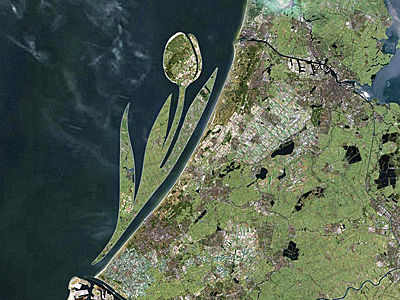The promotion of renewable energy is hampered by a small number of misinformation

Due to the global warming and the shortage of crude oil caused by Russia's invasion of Ukraine, the attention of 'renewable energy' is increasing all over the world. However, in the United States, 'misinformation' that hinders the introduction of renewable energy is widespread, and the non-profit public radio network National Public Radio (NPR) explains the actual situation.
Misinformation is stopping renewable energy projects: NPR
https://www.npr.org/2022/03/28/1086790531/renewable-energy-projects-wind-energy-solar-energy-climate-change-misinformation
At the beginning of the NPR article is an episode of Jeremy Kitson, who lives in Vanguard, Ohio. Kitson, who teaches physics and chemistry at a local high school, attends a meeting to discuss a new wind turbine to be built nearby around winter 2016, and is trying to build the turbine in question. We have created a Facebook community 'Citizens for Clear Skies' to blame companies.
This post shared by Citizens for Clear Skies includes a Portuguese study of noise producing horses with congenital deficiencies and a study of the harmful effects of ultra-low frequency sounds produced by wind turbines, called wind turbine syndrome. In addition to research that wind power generation does not lead to reduction of carbon dioxide at all, it was a picture of an accident involving a wind turbine. According to a 2014 survey conducted by the U.S. Department of Energy, only 40 accidents occurred in 40,000 wind turbines in a year, and Kitson said, 'These accidents are unlikely to happen. Contrary to the answer, Kitson continues to share wind turbine-related accident photos at Citizens for Clear Skies.
The problem pointed out by NPR this time is that 'misinformation affects the advancement and retreat of renewable projects.' Not only Facebook groups such as those run by civilians like Mr. Kitson are spreading misinformation about renewable energy, but 'wind turbine noise is said to cause cancer,' he said . Former President Trump and the Thinktank Texas Public Policy Foundation, which are said to be sponsored by the fossil fuel industry, have released a movie that has hit the fishery rather than being ineffective. According to Josh Fergen of the University of Minnesota, Darus, who specializes in issues, 'the influence of the Facebook group is particularly large.'
In a paper published by Felgen, the Ohio Power Location Commission, which is responsible for approval to build wind turbines, is geological as a result of a protest on Facebook by Kitson's group and another group mentioned above. Concerns and 'local opposition' have led to the rejection of new wind turbine construction.
Facebook is continuing its efforts to label misleading posts as 'misinformation' about the misinformation problem, but when NPR actually conducted a survey this time, anti-wind power generation and anti-solar power generation The denial of climate change posted by photovoltaic power generation was labeled with misinformation, but misleading posts about renewable energy were not labeled with misinformation. A Facebook spokeswoman replied, 'Because of the small number of shares,' but as mentioned above, there is a paper by Mr. Felgen that 'the influence of the Facebook group is also appearing in public policy.' NPR is a dissertation that blames Facebook.
According to the NPR, although we know that some people feel stressed when the shadows of wind turbines come into view, there is no evidence to support the 'shadows cause seizures', and ' Regarding the rumor that if a wind turbine is built in the neighborhood, the asset value of the property will decrease by 20 to 40%, 'the amount of decrease in the asset value will be much smaller than claimed.' NPR is once again questioning the fact that fake news has affected the availability of renewable energy despite the ever-increasing demand for it.
Related Posts:
in Note, Posted by darkhorse_log







